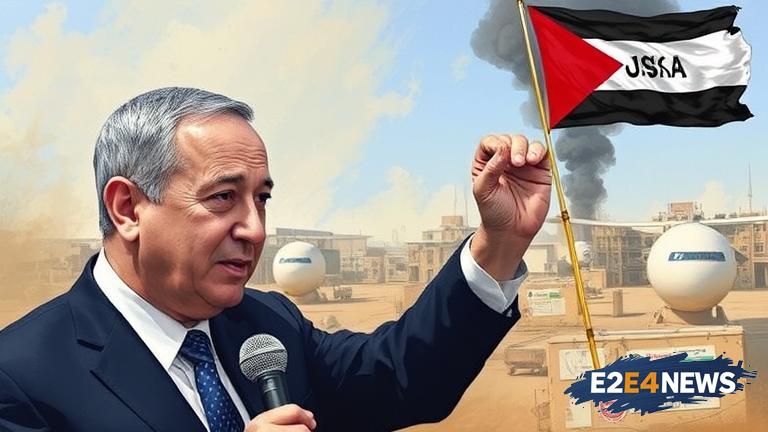According to recent reports from Israeli media, Prime Minister Benjamin Netanyahu is allegedly seeking to fully occupy the Gaza Strip, a move that has sparked widespread concern and criticism. The reported plan, which has not been officially confirmed by the Israeli government, would involve a significant escalation of Israel’s military presence in the region. Gaza, a coastal territory with a population of approximately 2 million people, has been under Israeli blockade since 2007, leading to severe economic and humanitarian crises. The Israeli government has long maintained that its blockade is necessary for security reasons, citing the threat posed by Hamas, the Islamist movement that has controlled Gaza since 2007. However, critics argue that the blockade is a form of collective punishment, which is prohibited under international law. If Netanyahu’s reported plan were to come to fruition, it would likely involve a significant increase in Israeli military personnel and equipment in Gaza, potentially leading to further violence and instability in the region. The move would also likely be met with widespread international condemnation, as it would be seen as a clear violation of international law and the rights of the Palestinian people. The United Nations has repeatedly called for an end to the Israeli blockade, citing the devastating impact it has had on the people of Gaza. The reported plan has also sparked concern among Israeli politicians, with some warning that it could lead to a significant escalation of violence and undermine efforts to achieve a peaceful resolution to the conflict. Others have argued that the plan is a clear attempt to distract from Israel’s own internal political crises, including the ongoing corruption investigations surrounding Netanyahu. The Israeli prime minister has faced significant criticism in recent months, with many accusing him of using the conflict with Gaza as a way to shore up support among his right-wing base. Despite the lack of official confirmation, the reported plan has already sparked widespread protests and condemnation from Palestinian leaders, who have warned that it would be a disaster for the people of Gaza. The Palestinian Authority, which is based in the West Bank, has called for international intervention to prevent the reported occupation, citing the need to protect the rights and dignity of the Palestinian people. The reported plan has also sparked concern among international leaders, with many warning that it could have significant consequences for the region and the world at large. The European Union has called for restraint and calm, urging all parties to work towards a peaceful resolution to the conflict. The United States, which has long been a key ally of Israel, has also warned against any actions that could escalate the conflict, citing the need to protect the rights and dignity of all parties involved. As the situation continues to unfold, it remains to be seen whether Netanyahu’s reported plan will come to fruition, and what the consequences will be for the people of Gaza and the wider region. One thing is clear, however: the reported plan has sparked widespread concern and condemnation, and has highlighted the need for a peaceful and just resolution to the conflict. The international community must come together to prevent further violence and instability, and to protect the rights and dignity of the Palestinian people. The reported plan is a clear reminder of the need for a two-state solution, which would see the establishment of an independent Palestinian state alongside the state of Israel. This solution, which has been widely supported by the international community, would provide a clear and just resolution to the conflict, and would allow for the realization of the rights and dignity of the Palestinian people. However, the reported plan suggests that Israel may be moving away from this solution, and towards a more aggressive and expansionist approach. This approach would have significant consequences for the region and the world at large, and would likely lead to further violence and instability. As such, it is imperative that the international community comes together to prevent the reported occupation, and to work towards a peaceful and just resolution to the conflict.





